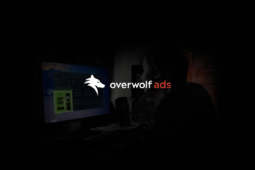Digest: OpenAI Launches ChatGPT Atlas Browser; Omnicom Revenue Rises on Ad Strength; Netflix Expands into Interactive Experiences
by on 23rd Oct 2025 in News

In today’s Digest, we cover OpenAI launching the ChatGPT Atlas browser, Omnicom’s revenue rising on ad strength, and Netflix expanding into interactive experiences as its shares fall on a Brazil tax hit.
OpenAI launches ChatGPT Atlas Browser
OpenAI has introduced ChatGPT Atlas, a new AI-powered web browser designed to challenge dominant browsers such as Google Chrome and Microsoft Edge. The browser offers users a more seamless way to access information, complete tasks, and interact with digital content without switching tabs or copying and pasting. Atlas aims to serve as a context-aware assistant, capable of understanding user intent and drawing on previous conversations to enhance productivity.
Atlas also features its optional browser memory, which allows ChatGPT to retain context from visited websites and reapply it when needed which enables users to perform complex tasks such preparing for interviews based on prior browsing activity. Agent mode, also available in Atlas, enhances the assistant’s ability to research, automate tasks, and manage appointments directly within the browsing window.
Omnicom revenue rises on ad strength
Omnicom has announced a 4% increase in third-quarter revenue, reaching USD$4.04bn (£2.99bn), driven by strong performance in its media and advertising division. The advertising giant reported organic growth of 9.1% in that segment, which remains its largest revenue contributor. Analysts attribute the company’s resilience to its diversified operations and adaptable cost structure, which have helped it navigate ongoing volatility in the media and advertising landscape.
Netflix expands into interactive experiences as shares fall on Brazil tax hit
Netflix is broadening its approach to gaming, positioning it as part of a wider initiative centred on interactivity, according to co-CEO Greg Peters’ comments during the company’s Q3 2025 earnings call. Rather than viewing games as standalone products, Peters emphasised their potential to complement traditional storytelling formats and unlock new entertainment experiences.
As part of its evolving strategy, Netflix is prioritising multiplayer party games that can be played on television using smartphones as controllers, removing the need for specialised hardware. Netflix is also investing in games tied to its original franchises, titles for children, and mainstream releases such as Grand Theft Auto: The Trilogy The Definitive Edition.
The company is also currently trialling real-time voting features with Dinner Time Live With David Chang, and plans to incorporate similar interactive elements into its upcoming Star Search revival.
Meanwhile, Netflix reported a 17.2% year-on-year increase in third-quarter revenue, reaching USD$11.5bn (£8.51bn), driven by subscriber growth, price increases, and rising advertising income. Net income edged up to USD$2.5bn (£1.85bn), but the company’s operating margin fell short of expectations at 28%, below its 31.5% guidance. The shortfall was attributed to costs linked to an ongoing legal dispute with Brazilian tax authorities over a business levy dating back to 2022. Shares dropped more than 5% in after-hours trading following the announcement.
Despite the margin setback, Netflix maintained its full-year revenue forecast of USD$45.1bn (£33.4 bn), up 16%. The company said it expects to more than double advertising revenue in 2025, although it did not disclose specific figures.








Follow ExchangeWire